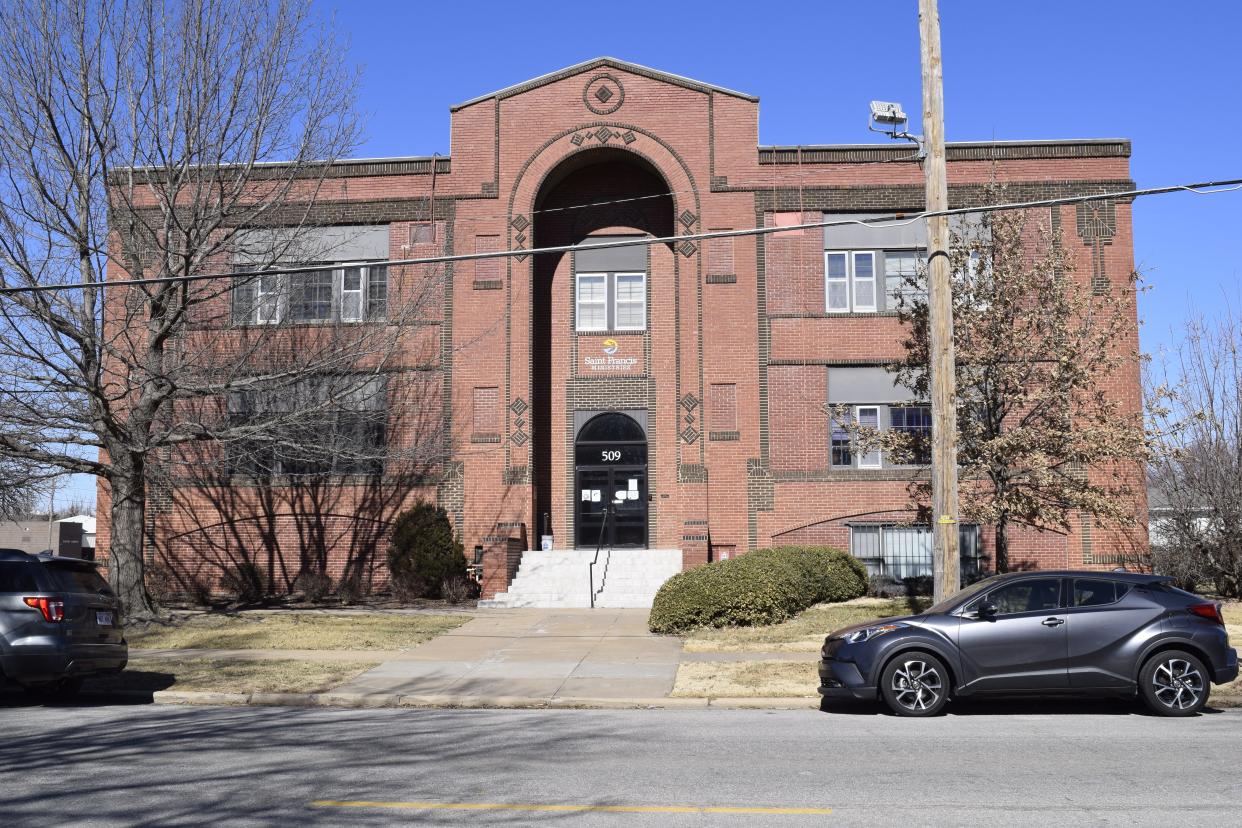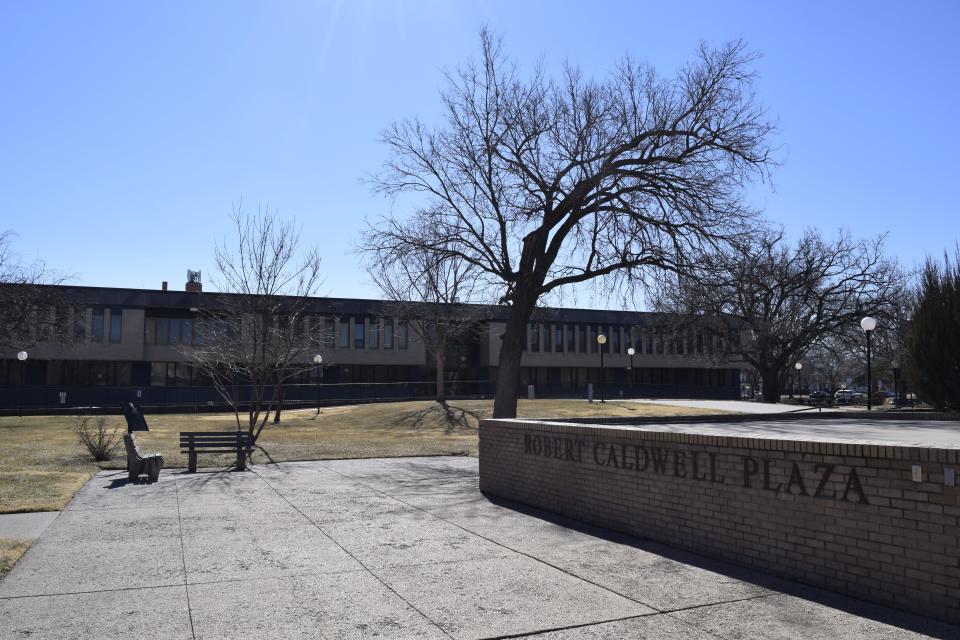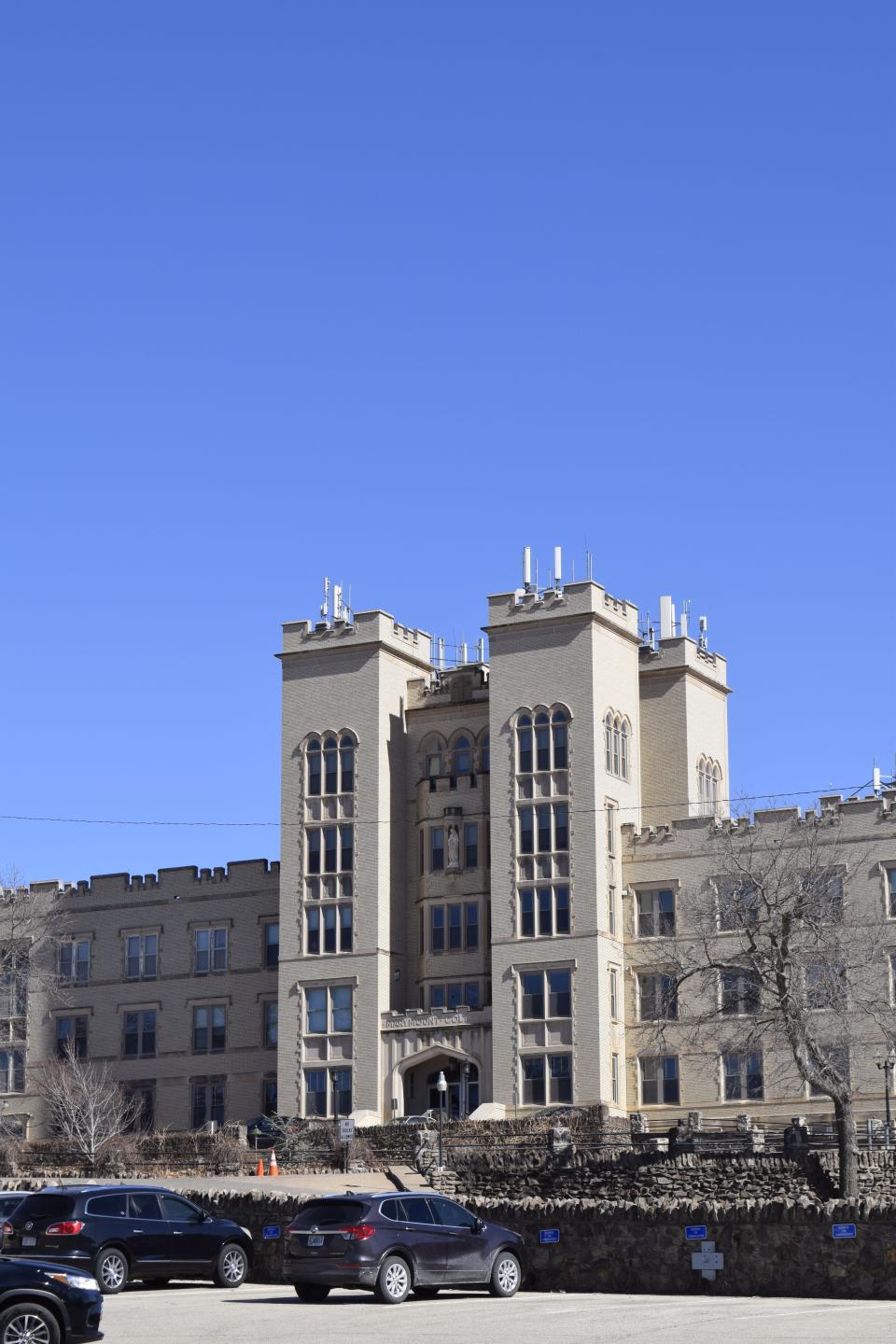The Smoky Hill Museum teaches about Black history in Salina through a new driving tour

There are hundreds of stories to tell about Salina' s Black history. The Smoky Hill Museum has gathered a few.
The Black History Driving Tour, which the museum began this month, takes people on a journey through the history, growth and future of the Black community in Salina.
The history of the Black community in Salina is rich and full, with so many stories to be told, and Nona Miller, the curator of education at the museum, said she knew that every story couldn't be told.
"I wanted to tell a story, so I created the categories of struggle, resilience, community and the future," she said.
Finding which stories to tell didn't fall on Miller alone, as many at the museum knew quite a few of the stories of prominent Black people in Salina's history.
"I just started putting the names into the different categories," Miller said.
Also important to telling this story was having a variety of time periods. There are stories beginning in the 1890s leading up to the present day and into the future.
Seeing the struggle and empathizing with it
The tour starts at the corner of N. Ninth and W. North streets. In 1893, Dana Adams, a 19-year-old Black man fought and injured a white employee for Union Pacific.
After being caught, put on trial and sentenced to seven years in prison, all on the same day, the sheriff planned to take Adams on the train to Leavenworth that evening.
Adams, Miller recalled, never made it to prison because a mob of roughly 50 men pulled him from the train and hung him from a telegraph pole near while close to 200 watched.
"I find that (story) just heartbreaking," Miller said. "My empathy just kicks into gear, and I can't imagine how frightened that poor fella was."
This is the only known lynching in the history of the city. This is fewer than many other areas around the state and country, but Miller said the number doesn't really matter as it is still a life taken.
"(The small number in Salina) sure doesn't (matter) to Mr. Adams," Miller said.
During the late 1800s through the early 1900s, Kansas lynched 55 people, according to the Kansas Historical Society, placing Kansas 18th in the nation.
More: Here's what the Kansas Can School Redesign Project looks like at Ell-Saline Unified School District
Success and leadership within the city
Other stops on the tour include areas of the city that saw Black life thrive, even in the face of struggle. One such place is the area around Elm and Second streets.
Here, people will find the former Dunbar School, the city's K-8 segregated school until 1955. This neighborhood also housed the Carver Center, Carver Pool, the Black public swimming pool, and the Booker T. Washington Community Center.
Miller said this area has plenty of stories to tell in and of itself that may need to be explored in the future.
"There is so much over in that area of Dunbar," Miller said.

Black leadership is also found on the tour, with a visit to Robert Caldwell Plaza, which lies between the City-County Building and library.
The plaza is named after a man who taught at Dunbar and Salina Central High schools and was elected to the City Commission in 1969. He served eight years and became the city's first Black mayor in 1970.
More: Small businesses in Salina getting help with health insurance through Chamber
A look at the recent past and toward the future
While Miller recognizes that even though there has been success and the Black people in this city have found ways to be resilient, there is still work to be done.
"I'm not going to pretend that the struggle is over," she said.
In recent years, other prominent Black Salinians have found success in places outside of Salina, reaching around the country, and in some cases, around the world.

The tour stops at the former Marymount College, where Salinan and actor Tyrees Allen graduated with a theater degree. He has gone on to see a successful career in TV, film and on the stage, including appearing on Broadway.
The final stop on the tour, for now, is the Salina Stadium, where athletes like Terence Newman played football at Salina Central High School. After a career at Kansas State University, Newman was selected fifth overall in the 2003 NFL Draft and went on to have a successful career, including two Pro Bowls, playing for the Dallas Cowboys, Cincinnati Bengals and Minnesota Vikings until 2017.
Salina Stadium is also where Salina Central graduate Adrianna Franch played as the goalkeeper for the Mustang's soccer team. In recent years, Franch has enjoyed success as the goalkeeper for the Portland Thorns and for the United States Women's National Team, where she was part of the 2019 World Cup championship and 2020 Olympic bronze medal squads. Franch found her way back to Kansas in 2021 and is now a part of the Kansas City Current soccer team.
More: Saline County invests in residents’ mental health by partnering with text message program Cope Notes
Black history is more than just a month
While the launch of this tour came during February, Black History Month, Miller said the museum intentionally called it just the Black History Driving Tour.
The tour isn't just going to end with this month, she said, because history is something that is always worth looking at and (there are so many) stories worth telling.
"(These stories) are worth knowing," Miller said. "The past can instruct us, can inspire us and I believe can make (us) a better person sometimes."
This article originally appeared on Salina Journal: The Black History Driving Tour looks at Salina stories

